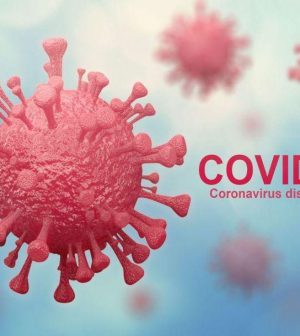- Recognizing the Signs of Hypothyroidism
- 10 Strategies to Overcome Insomnia
- Could Artificial Sweeteners Be Aging the Brain Faster?
- Techniques for Soothing Your Nervous System
- Does the Water in Your House Smell Funny? Here’s Why
- Can a Daily Dose of Apple Cider Vinegar Actually Aid Weight Loss?
- 6 Health Beverages That Can Actually Spike Your Blood Sugar
- Treatment Options for Social Anxiety Disorder
- Understanding the Connection Between Anxiety and Depression
- How Daily Prunes Can Influence Cholesterol and Inflammation
Provincetown Outbreak Shows Delta Can Spread Among Vaccinated, But Cases Are Mild

The Cape Cod resort town of Provincetown draws big crowds every summer. In July, those largely vaccinated crowds — packed into bars, restaurants and private homes — were the genesis of an outbreak of the Delta variant that could be a sobering model for the nation.
New data on the outbreak, released Friday, shows there were a known total of 469 COVID-19 cases “associated with multiple summer events” among Provincetown revelers. Three-quarters (74%) of those cases occurred among people who’d gotten their COVID vaccinations an average of almost three months before.
In 89% of those cases, the highly contagious Delta variant was implicated, concluded a team led by Dr. Catherine Brown of the Massachusetts Department of Public Health.
There was some good news, however: While many of the 346 cases among vaccinated individuals might have made them feel miserable for a time — coughs, headache, sore throat, aches and fever being the major symptoms — there were only four cases (1.2%) in this group that required hospital care.
In all four of those hospitalized cases, patients had underlying medical conditions that upped their odds for severe COVID-19, the researchers found.
A fifth case requiring hospitalization occurred in an unvaccinated patient, Brown’s team noted, and that case also involved an underlying medical condition.
There were no deaths linked to the outbreak.
The researchers noted that it’s not surprising that three-quarters of cases in the Provincetown outbreak occurred among the vaccinated, because a full 69% of the town’s vaccine-eligible residents have gotten their shots — a number that’s much higher than the national average.
Equal viral loads
However, given the increased transmissibility of the Delta variant, Brown’s team believe their findings “suggest that even jurisdictions with substantial or high COVID-19 transmission might consider expanding prevention strategies.”
Those strategies should include “masking in indoor settings regardless of vaccination status, given the potential risk of infection during attendance at large public gatherings,” they said.
The Provincetown findings also confirm that, unlike its predecessor, the Delta variant appears to produce high viral loads in people’s systems, upping transmission risks.
“Specimens from 127 vaccinated persons with breakthrough cases were similar to those from 84 persons who were unvaccinated,” the research team noted.
That finding helped drive the CDC’s decision this week to reverse course on its masking advisory. The agency now recommends that even the vaccinated once again don masks in many indoor settings, to lessen the odds they might transmit SARS-CoV-2 to others.
It also adds new energy to federal, state and local efforts to get more Americans vaccinated.
However, one leading infectious disease expert stressed that the one thing the Provincetown report should not do is lessen the average American’s faith in the power of vaccines to protect against what’s most important: Severe illness.
“The new data should not alarm anyone, but reinforce that vaccinations are the solution to the pandemic,” said Dr. Amesh Adalja, a senior scholar at the Johns Hopkins Center for Health Security in Baltimore.
A return to masking indoors
“That severe breakthrough infections were rare is testament to the vaccines, which limit the harm an infection can do in a fully vaccinated person,” he said. “It’s also important to remember the breakthroughs that occurred in this situation are likely not completely applicable to the everyday life of the vaccinated, as the intensity and nature of exposure was in the context of a large public gathering.”
Another expert said the implications of the findings are clear.
“At this time, even fully vaccinated people need to consider large gatherings as a potential place to contract the virus,” said Dr. Teresa Murray Amato, chair of emergency medicine at Long Island Jewish Forest Hills, in Queens, N.Y. “This also means that for Americans that are not yet vaccinated,” they should strongly consider doing so.
Adding to the Provincetown findings, a new internal federal government document also finds the Delta variant can cause more severe illness than earlier coronavirus variants, especially among the unvaccinated, and spreads as easily as chickenpox.
In laying out the evidence that this variant looks like the most dangerous one yet, the document urges health officials to “acknowledge the war has changed,” the Washington Post reported.
The document mirrors the data in the Provincetown study, finding that vaccinated people infected with Delta have viral loads similar to those who are unvaccinated and infected with the variant, the Post reported.
CDC scientists were so alarmed that the agency changed masking guidance for vaccinated people earlier this week, even before making the new data public, the newspaper said.
CDC Director Dr. Rochelle Walensky said in a statement on Friday that the Provincetown investigation “is one of many CDC has been involved in across the country and data from those investigations will be rapidly shared with the public when available.”
The Provincetown study was published July 30 in the CDC journal Morbidity and Mortality Weekly Report.
More information
Find out more about the Delta variant at Yale University.
SOURCES: Morbidity and Mortality Weekly Report, July 30, 2021; Amesh A. Adalja MD, senior scholar, Johns Hopkins Center for Health Security, Baltimore; Teresa Murray Amato, MD, chair, emergency medicine, Long Island Jewish Forest Hills, Queens, N.Y.; U.S. Centers for Disease Control and Prevention, news release, July 30, 2021
Source: HealthDay
Copyright © 2026 HealthDay. All rights reserved.










